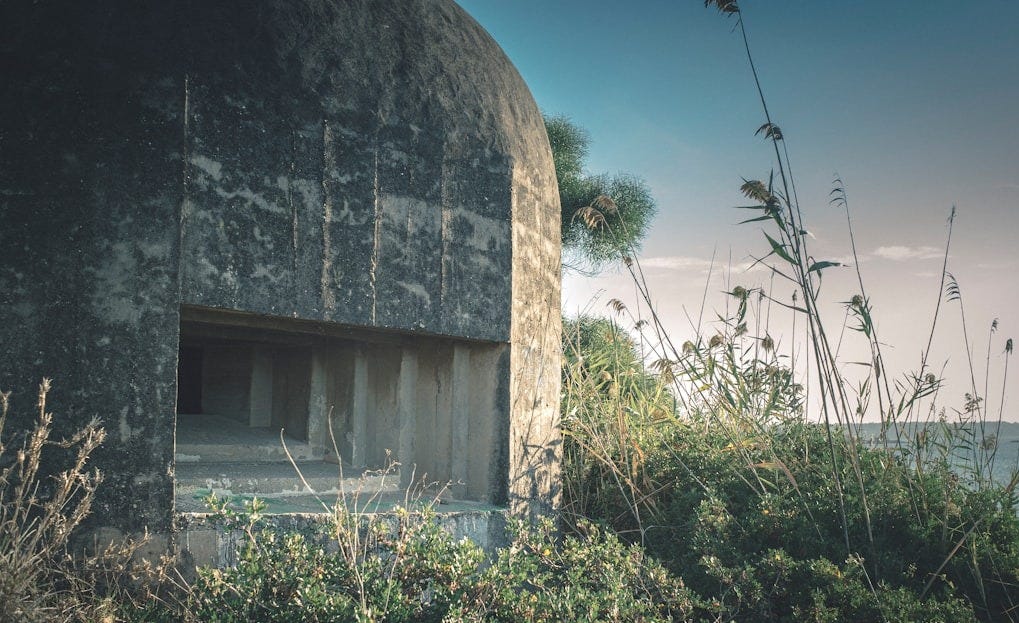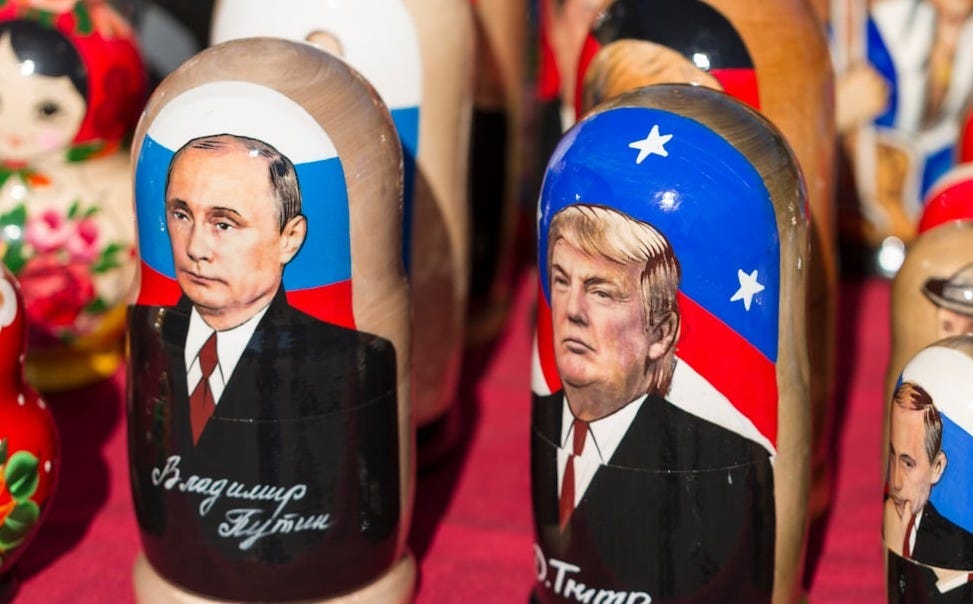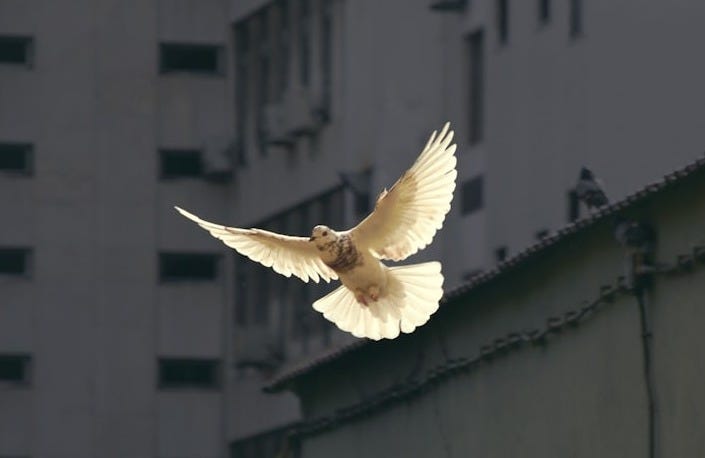Antony Beevor on Putin, Trump, and global chaos
Are we losing our connection to the Second World War?
Antony Beevor, one of the world’s preeminent historians of war and revolution, is so unsettled by today’s conflicts that he wants us to consider a question that, at first glance, may seem ridiculous.
Are we losing our connection to the Second World War? Put differently, to what degree has common memory of the war shifted from one of unspeakable cruelty and misery to a prideful memory teeming with heroic nostalgia?
First, we must acknowledge that the existing “rules-based order,” created after the cataclysm ended in 1945, has witnessed plenty of violence and disorder, as Beevor concedes in his superb essay (no paywall) for Foreign Affairs, the official publication of the Council on Foreign Relations.
Yet imperfect as the past 80 years have been, the world has enjoyed “great-power peace,” Beevor writes. And the rules, however frequently broken, stand for something.
The United Nations’ charter called for the sanctity of borders and universal human rights. New international legal institutions were supposed to hold violators accountable. Other post-war architecture included NATO, the IMF, World Bank, and World Trade Organization (formerly GATT) — all designed to maintain peace and stability in a world once ravaged by armed aggression and genocide. Direct violence, starvation, and disease killed something like 100 million people in the two world wars.
Back to the question: Are we forgetting how hellish the world was before some rules were established to try to maintain peace?
As mentioned, the question seems ridiculous at first. Forget World War Two?!? Speaking as an American, the “good war” is an inexhaustible wellspring of national pride and triumphant attitudes. Allied victory produced the American Century, and once the Soviet Union vanished — no doubt “defeated” by the U.S. — we reached the end of history.
Sure, the past 30 years have proven a slew of post-Cold War assumptions wrong, and trust in American institutions is in ruins. However, we can still fondly reflect upon total victory over Nazi Germany and Imperial Japan. Our pop culture serves up righteous might and selfless heroes with Saving Private Ryan and “the Greatest Generation.” Wars are messy, but our memories of this one usually are not — unless you care to read about, for instance, the strategic bombing campaign or internment of Japanese Americans.
Now, consider what Beevor says in his essay:
“For decades after the war, its memory lived on in those who had experienced it firsthand. The postwar order was shaped by generations whose aim was to prevent such a tragedy from ever occurring again. But for those who did not experience the conflict and look back from today, the casualty count of World War II may be just a figure — it is difficult to truly absorb the reality of tens of millions of deaths. Losing this direct connection to the past means losing the shared resolve that for 80 years has produced an unbroken, if highly imperfect, great-power peace.”
The Second World War touched the lives of nearly every living person. The death and suffering continued for years after 1945 as fighting continued in much of the world, prisoners of war never returned, collaborators and traitors – real or imagined – received draconian punishments, and as tens of millions were forcibly displaced across obliterated borders, Beevor says.

Can we feel this anymore? We may read books about it. We certainly talk about the lessons of the Second World War in political discourse – not another Munich! But the generations who carried the war’s physical and emotional scars, people who lamented rather than heroicized how the conflict changed their world, have mostly passed from the scene.
Consider why Margaret Thatcher initially opposed the reunification of Germany. “We beat the Germans twice, and now they’re back!” she said in late 1989. She argued in 1993 that “by its very nature, Germany is a destabilizing, rather than a stabilizing, force in Europe.” Her ideas may appear paranoid from our perspective now, but in 1989, the Second World War was not some distant memory. Thatcher was a teenager during the Battle of Britain when Hitler tried to bomb her country into submission.
Today, Germany is not Europe’s problem — not in the way it was in 1914 and 1939. The problem is a different country that European leaders either underestimated or dismissed: Putin’s Russia, once humiliated, now revanchist. After decades of “peace and stability,” who could have expected another major land war in Europe? Which leader would be so stupid as to fling his armies into a neighboring country expecting them to reach Kyiv in days?
This is what Beevor means by “losing our connection” to the Second World War at a time when powerful individual leaders are shaping the course of history once more.
Putin, as Beevor explains, has politicized Russian memory of Soviet victory in Europe, whose eightieth anniversary was just celebrated with a massive parade in Red Square. There is no mention of Soviet abuses in Poland or Stalin’s pact with Hitler; indeed, Putin remembers the war’s start as June 1941, not September 1939. His ongoing war in Ukraine against imaginary Nazis is therefore an extension of the fight for great Russian civilization.
“Today, the first major continental war in Europe since World War II is in its fourth year, driven in part by Putin’s selective reading of Russian history, while deadly conflicts in the Middle East and elsewhere threaten to spread further. The Trump administration, meanwhile, appears to be casting aside the United States’ global leadership in a confused tantrum,” he writes.
Trump and Putin
In Tuesday’s episode of History As It Happens, Sir Antony Beevor talks about the various ways that different leaders are imperiling what’s left of the rules-based order. For the history-obsessed Vladimir Putin, might makes right. “As far as he’s concerned, the world is redividing,” says Beevor.
“Putin is not just a hard-line, latter-day Stalin or anything like that. If you look at the Kremlin or even his palace on the Black Sea, there are no symbols of the Soviet Union. There aren’t any hammers and sickles. It’s all gold double-headed eagles from the Tsarist empire. Although Putin will of course – and he’s very clever in this particular way – laud Stalin and go on about the courage of the Red Army in the Second World War, his ideology actually comes from much further back. It comes from the Whites, who were defeated by the Reds in the Russian Civil War. Their mentality, their idea was of a wholly Slav, Russophile empire. And Putin’s ideologues [Medinsky, Dugin] believe that wholly Slav Russia has a right to dominate the whole of the Eurasian land mass all the way from Vladivostok to Dublin.”

Beevor continues: “What’s astonishing is that even within some of President Trump’s entourage, there are those who rather agree with this idea that Russian spirituality is greatly superior to the liberal views of Western Europe.”
The most unsettling change in the status quo, at least to many of my Europe-based podcast guests, has been Washington’s posture toward U.S. allies in the Age of Trump. As Beevor and I discuss, President Trump sought to pressure Ukraine to begin negotiations as the party responsible for the war. “You should never have started it,” Trump reminded Zelensky in February. Russia, in Trump’s backward thinking, was the aggrieved party.
“All of this is a major moment in history,” says Beevor. “And the fact that it should coincide with the eightieth anniversary [of the end] of the Second World War is something which gives us a lot to reflect upon.”
In Beevor’s view, Trump’s foreign policy is a hard-to-define combination of realism and fantasy. There are myriad examples of the latter: Ukraine “started” the war. Palestinians should vacate Gaza so it can be turned into a seaside resort destination. Canada would be better off as the 51st state. China operates the Panama Canal. Sweeping tariffs will enrich the United States. Beevor says Trump is right to criticize Europe for being incapable or unwilling to provide its own defense, but the U.S. president doesn’t realize that Putin loathes him.
“He fails to see — rather in the way Lenin treated those Westerners who supported the Soviet Union in the early days, whom Lenin regarded as useful idiots — that Putin regards him in the same way. And there is a real concern in Europe that Trump does not see the way he is being played [by Putin],” Beevor says.
The existing disorder
Antony Beevor is too knowledgeable a scholar to sanitize the post-1945 period as “the Long Peace” merely because another great power conflict didn’t recur. He does no such thing. This brings us back to my argument at the top of this newsletter.
While it is fair to wonder how much worse things would have been had a “rules-based order” not emerged from the ashes of war and genocide — and although the Cold War and post-Cold War decades may have been statistically less deadly than 1939-1945 — we cannot label the past 80 years as peaceful. U.S. interventionism, especially after 9/11, was utterly disastrous in human carnage and national destabilization, as I discussed with Sir Antony in the podcast.
In his 2017 book The Violent American Century, historian John W. Dower dismantles the sanitizers’ arguments about “the Long Peace.”
“Such upbeat quantification invites complacent forms of self-congratulation,” writes Dower. “Branding the long post-war era as an epoch of relative peace is disingenuous, and not just because it deflects attention from the significant death and agony that actually did occur and still does. It also obscures the degree to which the United States bears responsibility for contributing to, rather than impeding, militarization and mayhem after 1945” (p. 2-3).
During the Cold War, the CIA helped topple democratically elected leaders in the name of containing or rolling back Communism. The U.S. carpet bombed Vietnam, Cambodia, and Laos. After 9/11, the Bush administration adopted pre-emptive war and torture in the name of fighting terrorism. I could go on, but this is a newsletter, not a history book.
Other major and minor powers and non-state groups, such as al-Qaeda, spilled oceans of blood in violation of civilization’s rules. Civil wars abounded. Genocides happened, even though the rules obligated the world to intervene to stop them.
Lastly, when it comes to the oft-invoked “rules-based order,” what’s left now lies buried in the rubble of Palestinian society in Gaza. If there are rules against starvation as an act of war, the world is choosing not to enforce them.
Also discussed with Antony Beevor in the podcast: why Putin chooses 1941 rather than 1939 as the start of WWII; perversity of calling Ukrainians Nazis; Cold War origins rooted in Stalin’s trauma from being deceived by Hitler; mass starvation in Japanese-controlled Southeast Asia in 1945; Trump’s foreign policy “realism;” and Beevor’s upcoming book about Rasputin.
Also, here are some past podcast episodes with Antony Beevor —>
Here we talk about his 2022 book, Russia: Revolution and Civil War, 1917-1921.
Here we go over the U.S. decision to drop the bomb on Japan in 1945.
Briefly… What I’m watching
Last night I started viewing Turning Point: Vietnam on Netflix. The producers had access to CBS News’ video vault. The production’s archival footage is simply enthralling, and the scholars offering on-camera commentary are superb. Two have appeared on my podcast recently.
Harvard’s Fredrik Logevall was my guest in the first of a three-episode series on the fiftieth anniversary of the Fall of Saigon. Listen here.
The University of Virginia Miller Center’s Ken Hughes, the master researcher of the White House audio tapes, joined me to talk about Nixon’s enemies list recently, but our conversation last year was more relevant to the Vietnam War. We talked about the Chennault Affair.
By the way, Fredrik Logevall shared some exciting news on my podcast: the second of his three-volume biography of JFK has been sent to the publisher. I have yet to read volume one because I don’t read many biographies. I intend to read JFK: Coming of Age in the American Century, 1917-1956 as soon as I have the time!
The most impressive biographies I’ve read are Ian Kershaw’s unparalleled two-volume work on Hitler; Robert Caro’s LBJ series (with volume five on the way, who knows when), and Stephen Kotkin’s three-volume biography of Stalin. Volumes one and two were outstanding; the closing book will reportedly be released in July 2026.
What is Chinese Communism?
Do China’s communists practice communism anymore? This is not an academic question. A bipartisan number of U.S. lawmakers, for instance, seem convinced China will wage war on Taiwan soon. China is said to be the biggest threat to U.S. primacy, both militarily and economically. So it would be wise to accurately decode China’s opaque system of government.
In today’s episode of History As It Happens, historians Sergey Radchenko and Enrico Fardella of the Johns Hopkins School of Advanced International Studies talk about what it means to be a Chinese communist in 2025.
They discuss the centrality of nationalism; deciphering Xi Jinping Thought; the relative importance (or unimportance) of Marxism-Leninism; China’s vulnerability to trade disruption as the top export economy; Warring States realpolitik; common Washington misconceptions about China’s aims; and much else.
What’s next?
In Tuesday’s podcast, political scientist and Substack writer Damon Linker will return to talk about his New York Times op-ed on the ideas behind President Trump’s approach to wielding executive power. It is the best piece I’ve read explaining Trump in power and the real ideological threats to republican government. There were no mentions of fascism or silly comparisons to Hitler. However, a German figure from the 1930s is part of this story.
Linker is the mind behind Notes From the Middleground on Substack. He seriously engages with the ideas driving the right-populist movement.
Next Friday, historians Jeremi Suri and Jeffrey Engel will discuss presidential peacemakers. Many U.S. leaders saw themselves as men of peace — even Richard Nixon as he bombed the living daylights out of Southeast Asia.
Donald Trump says he wants peace with Russia, Ukraine, Iran, and Israel-Palestine, among others. Which past presidents succeeded at forging peace? Jeff, Jeremi, and I will discuss and debate.






Apparently nato aggression toward Russia via Ukraine is ok.